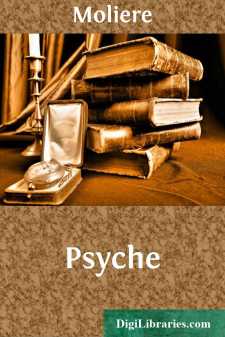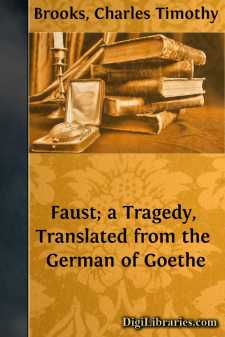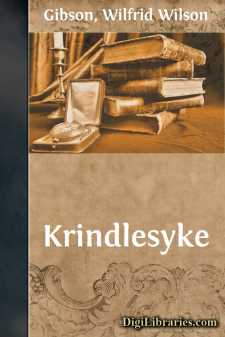Drama
General Books
Sort by:
by:
Moliere
PROLOGUE. The front of the stage represents a rustic spot, while at the back the sea can be seen in the distance. SCENE I. Flora. appears in the centre of the stage, attended by Vertumnus, god of trees and fruit, and by Palemon, god of the streams. Each of these gods conducts a troup of divinities; one leads in his train Dryads and Sylvans, and the other River Gods and Naiads. Flora sings the...
more...
by:
Jack London
ACTORS' DESCRIPTION OF CHARACTERS Margaret Chalmers. Twenty-seven years of age; a strong, mature woman, but quite feminine where her heart or sense of beauty are concerned. Her eyes are wide apart. Has a dazzling smile, which she knows how to use on occasion. Also, on occasion, she can be firm and hard, even cynical An intellectual woman, and at the same time a very womanly woman, capable of...
more...
FAUST. Night. In a narrow high-arched Gothic room, FAUST sitting uneasy at his desk. Faust. Have now, alas! quite studied throughPhilosophy and Medicine,And Law, and ah! Theology, too,With hot desire the truth to win!And here, at last, I stand, poor fool!As wise as when I entered school;Am called Magister, Doctor, indeed,—Ten livelong years cease not to leadBackward and forward, to and...
more...
SCENE I. A room fitted up for astrological labors, and provided withcelestial charts, with globes, telescopes, quadrants, and othermathematical instruments. Seven colossal figures, representing theplanets, each with a transparent star of different color on itshead, stand in a semicircle in the background, so that Mars andSaturn are nearest the eye. The remainder of the scene and itsdisposition is given...
more...
by:
Aristophanes
FOREWORD Lysistrata is the greatest work by Aristophanes. This blank and rash statement is made that it may be rejected. But first let it be understood that I do not mean it is a better written work than the Birds or the Frogs, or that (to descend to the scale of values that will be naturally imputed to me) it has any more appeal to the collectors of "curious literature" than the Ecclesiazusae...
more...
BOOK I PHŒBE BARRASFORD Krindlesyke is a remote shepherd’s cottage on the Northumbrian fells, at least three miles from any other habitation. It consists of two rooms, a but and a ben. Ezra Barrasford, an old herd, blind and decrepit, sits in an armchair in the but, or living-room, near the open door, on a mild afternoon in April. Eliza Barrasford, his wife, is busy, making griddle-cakes over the...
more...
Now first translated into English. This play is to be regarded merely as a dramatic narrative in which, for the purpose of tracing out the innermost workings of the soul, advantage has been taken of the dramatic method, without otherwise conforming to the stringent rules of theatrical composition, or seeking the dubious advantage of stage adaptation. It must be admitted as somewhat inconsistent that...
more...
by:
Aristophanes
Xanthias Shall I crack any of those old jokes, master,At which the audience never fail to laugh? DIONYSUS. Aye, what you will, except I'm getting crushed: Fight shy of that: I'm sick of that already. XAN. Nothing else smart? DIO. Aye, save my shoulder's aching. XAN. Come now, that comical joke? DIO. With all my heart. Only be careful not to shift your pole,And— XAN. What? DIO. And vow...
more...
THE JEW OF MALTA. Enter MACHIAVEL. MACHIAVEL. Albeit the world think Machiavel is dead,Yet was his soul but flown beyond the Alps;And, now the Guise is dead, is come from France,To view this land, and frolic with his friends.To some perhaps my name is odious;But such as love me, guard me from their tongues,And let them know that I am Machiavel,And weigh not men, and therefore not men's...
more...
SCENE I. The Royal Gardens in Aranjuez. CARLOS and DOMINGO. DOMINGO.Our pleasant sojourn in AranjuezIs over now, and yet your highness quitsThese joyous scenes no happier than before.Our visit hath been fruitless. Oh, my prince,Break this mysterious and gloomy silence!Open your heart to your own father's heart!A monarch never can too dearly buyThe peace of his own son—his only son.[CARLOS looks...
more...











